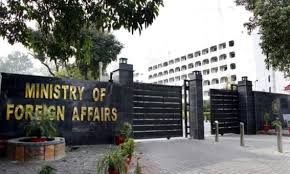USAID launches groundbreaking clean energy initiative to transform rural Pakistan

Celina Ali
Islamabad: The United States Agency for International Development (USAID) on Monday embarked on a groundbreaking clean energy initiative marking a pivotal moment in Pakistan’s journey towards sustainable development.
In a ceremony held here, USAID’s Power Sector Improvement Activity, alongside Muhammad Nawaz Sharif Agriculture University Multan (MNSAUM) and the Lahore University of Management Sciences (LUMS), signed a historic agreement aimed at transforming rural communities through innovative clean energy solutions. The new energy initiative, called ‘Energy-Food-Transportation Nexus (EFTN)’, is set to make a significant impact on Pakistan’s rural and farming areas.
By providing tailored clean energy solutions, the project will tackle issues like unreliable electricity, soaring fuel costs, and harmful cooking methods. These challenges have left rural communities economically disadvantaged and lacking access to modern energy services. Developed through collaborative research by USAID and LUMS, this initiative integrates solar panels, swappable batteries, charging stations, and electric three-wheelers into farmlands. This innovative approach not only boosts farmers’ productivity but also ensures clean energy for both farm and community needs. The initiative is poised to undergo rigorous pilot testing in Multan, exploring a myriad of economically viable applications. From water pumping and agricultural cold storage to medical facilities, transportation, and household electricity, the initiative seeks to revitalize rural economies across Pakistan.
Successful applications identified during the trials hold the promise of lifting millions out of subsistence living while fortifying national food security. MNSAUM and LUMS will work together to support the farmers in implementing and expanding EFTN technologies in the field. The EFTN initiative is a key part of USAID’s Power Sector Improvement Activity which aims to help Pakistan transition to a competitive power market, improve transmission and distribution systems, and use electricity more efficiently. By involving the private sector and local stakeholders, the activity vows to support Pakistan’s goal of increasing the share of renewables to 60 percent of the energy mix by 2030.





